REQUIEM
for a
MARTYR
By Greg Walker (ret)
USA Special Forces
“Peshraw Dizayee, the Kurdish businessman killed in Iran’s missile strike on Erbil early on January 16, was allegedly involved in exporting oil from Iraqi Kurdistan to Israel, Nour News, associated with the Islamic Republic’s Supreme Security Council, reported.
“The news outlet also claimed that Dizayee, the head of the Falcon construction company, had close ties with Israel’s intelligence agency, Mossad, and maintained strong relations with the leadership of Iraqi Kurdistan.
“Citing “reliable sources,” the news agency claimed that the SB Falcon Group, led by Dizayee, possessed a private army employing former US military personnel.”
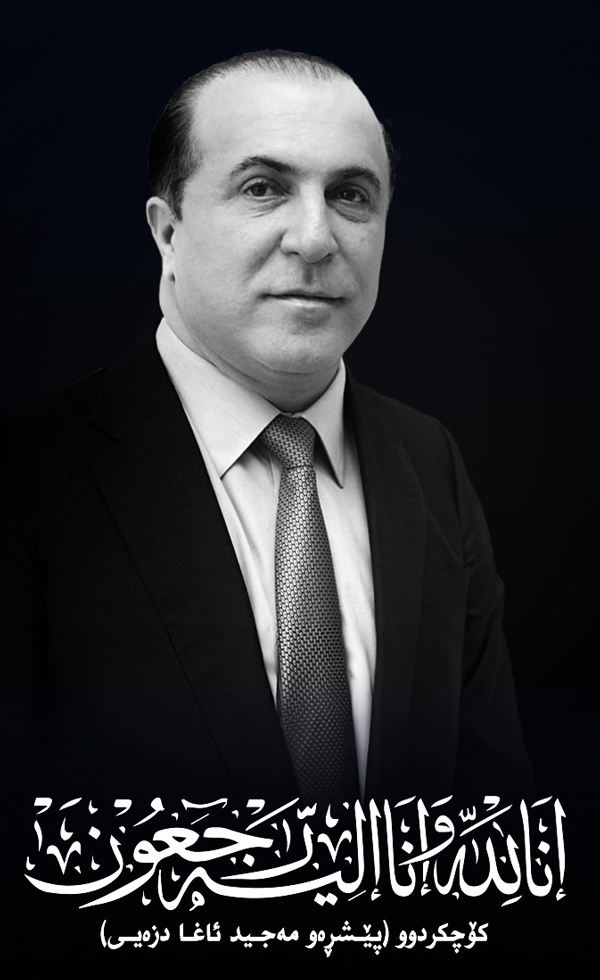
Peshraw Agha Dizayee (Credit: Falcon Group)
“Our only friends are the mountains and America”
In 2004, I became the first security director for Falcon Group in Iraq. This at the invitation of Mr. Peshraw Agha Dizayee, its founder and CEO. We had met in late 2003, in Baghdad, when I’d approached him for permission to install 14’ blast walls in front of the Kurdish owned and operated Sinbad Hotel. The Sinbad shared its entry point from the main street with the al Hyatt, once owned by Saddam Hussein and now the living quarters for the U.S. sponsored financial reconstruction team charged to reboot the Iraqi economy with a new currency.
Falcon, on the other hand, and a contingent of Kurdish Pesh Merga executive protection specialists, were protecting the only Kurdish female representative to the New Iraqi Government. That government body had only been installed during the 2003 Transition of Authority from the U.S. / Coalition Provisional Authority back to a fledgling democratic Iraqi political process.
Both the Sinbad and the al Hyatt were high value targets for the likewise nascent insurgency just getting underway and led by former regime loyalists (FRL).
Peshraw, upon hearing of my security concerns for both of us and learning I was a Special Forces soldier and U.S. DoD defense contractor, gave his blessing. Over the next three nights our two teams monitored and provided armed protection as the blast walls were put in place. He later agreed to allow my PSD to move over from the al Hyatt to the Sinbad. This once a contract was approved between us to bring fifteen additional Falcon static site security guards down from Erbil to man the floors our Client was on.
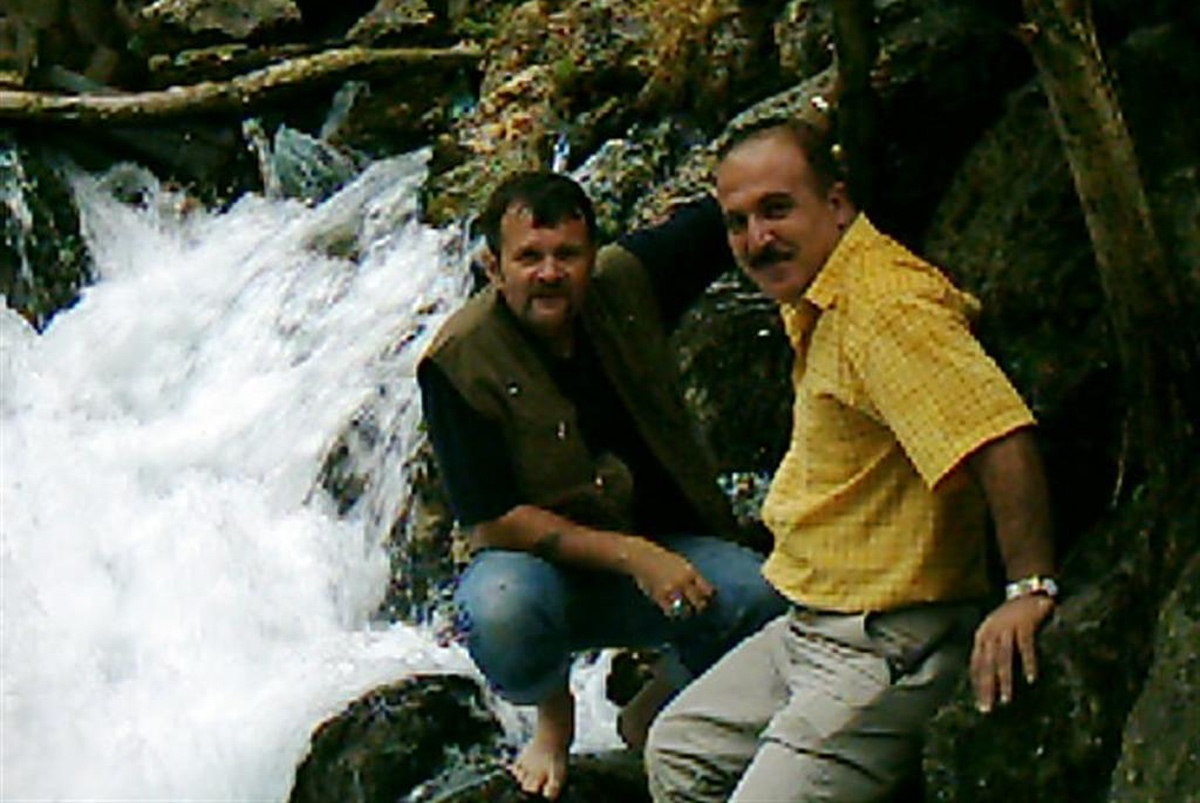
“Our only friends are the mountains and America.” —Peshraw Agha Dizayee (Author collection)
Peshraw, a veteran of the 2003 ground war in northern Iraq where he fought alongside the 10th Special Forces Group and CIA, knew and respected the “Green Berets”. Historically, he once told me, “Our only friends are the mountains and America.” He later came to include U.S. Special Forces in this unique relationship.
“In March 1991, in the aftermath of the coalition expulsion of Iraqi forces from Kuwait, the Kurds, together with the Shi’a in the south of Iraq, rebelled against Saddam. Despite early success in gaining control of the key cities in Northern Iraq, by April 1991 forces loyal to Saddam had crushed the rebellion; 1.5 million Kurdish refugees fled to Iran and Turkey.
“In April, the U.S. and coalition partners deployed military forces to Turkey to assist in humanitarian relief operations. The U.S. Army’s 10th Special Forces Group deployed elements to nearly every major refugee camp that had sprung up on both sides of the Iraq-Turkey border. For two months, they lived side by side with the refugees, facilitating life-saving support until the coalition established a no-fly zone over Northern Iraq and cleared Iraqi forces from the area.
“These actions set the conditions for the return of refugees to their homes in Iraq. For the Special Forces soldiers, this would be the beginning of a long association with the Iraqi Kurds. They provided combat search and rescue support to the coalition taskforce that patrolled the no-fly zone in Northern Iraq until 1996, a mission that included a ground presence in the Kurdish Autonomous Zone. The relationships and goodwill developed over these years of association would prove invaluable when the Special Forces soldiers returned to Northern Iraq in 2002 to begin preparation for Operation Iraqi Freedom.”
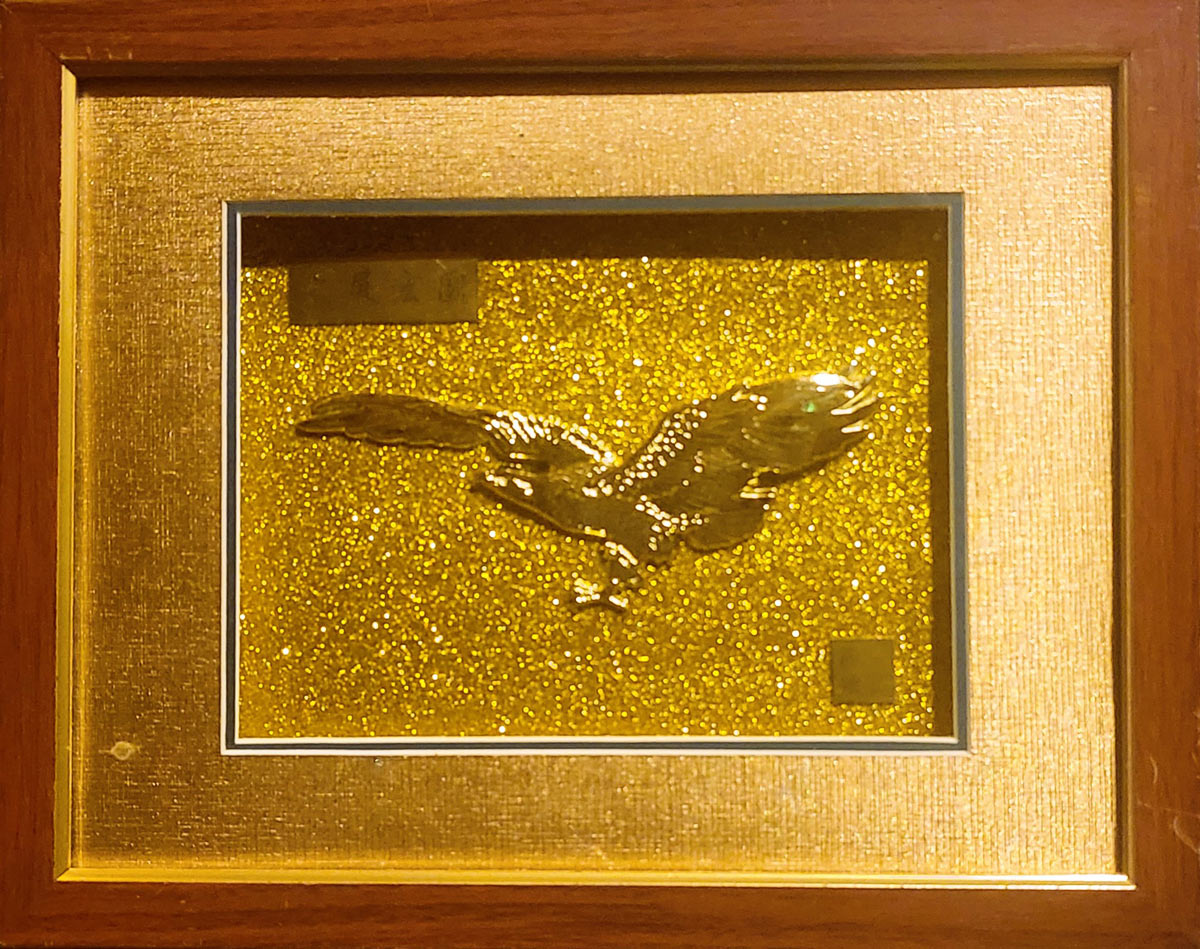
Mr. Dizayee gifted the author his personal Falcon plaque when I came onboard as its first Director of Security in Baghdad, Iraq. (Author collection)
In 2004, with Falcon Security now registered in Baghdad to conduct its operations in Iraq, Mr. Dizayee coordinated a growing number of contracts between the CPA and Falcon. These included convoy escort teams, static site perimeter security, and the provision of real-time Intelligence regarding the growing insurgency’s progress and players. The Kurdish Intelligence service in northern Iraq was and remains exceptionally professional and internationally influential. Prior to the ground war in Iraq their agents and informants provided accurate and timely intelligence products to the CIA which had no assets of its own on the ground in Baghdad, much less the rest of Iraq. It was this network that successfully removed Saddam’s much sought after intelligence files from Baghdad during the fight for the city, moving these to Erbil by convoy for further examination and study by, among others, Agency analysts.
“The CIA also had a lengthy association with the Kurds in Northern Iraq. As reported by The New York Times, the CIA began to work with Kurdish organizations in 1993 to establish an intelligence agency called Asayish (or “security” in Kurdish). The goals of the organization were counter-terrorism, counter-espionage, intelligence gathering, and analysis, and it had jurisdiction over economic crimes, espionage prosecution, and political corruption.”
Rebuilding the Kurdish Empire
“Forbes, in a separate account, characterized Dizayee as the owner of the Falcon Group in the autonomous region, overseeing major projects like Empire World, Erbil’s central business district, known for its prominent high-rise apartment complexes.”
But Peshraw’s vision for an independent and vibrant Kurdistan is best expressed by this description of Falcon Group from its Facebook page.
“Falcon Group from here [Erbil] serves other cities of Kurdistan and Iraq.
“Here, in Erbil, the land of humanity, the center of Zhyar and civilization of tens of kingdoms and has a history of thousand years of human life on earth.
“From here and in this ancient city, the steps of building, trade, protection, and technology for the present and future of a developed country.”
This vision had its roots in Peshraw and his family’s own experiences at the hands of Saddam Hussein. As he once described to me it was Saddam’s policies and forces that took everything his family had as the Iraqi dictator sought to wipe the Kurdish People out, or at least force them to flee northern Iraq (Kurdistan). This included destroying their homes and businesses and forcing thousands of displaced Kurds into a series of massive stone prisons holding upwards of 5000 Kurdish men, women, and children each . On one of our road trips from Baghdad to Erbil he showed me these prisons, seen clearly from the highway, each now abandoned. “Saddam took the villages and towns the people lived in and replaced their populations with Arabs,” he recounted. “That was his plan for all of Kurdistan.”
This genocide included the use of poison gas, or weapons of mass destruction, being used on Kurdish towns. “The attack on Halabja was the most notorious, deadliest poison gas attack against the Kurds. And it is also worth noting that Iraq became the first government to ever attack its own cities with chemical weapons.
“However, the horrific attack on Halabja was just one atrocity within a much wider campaign of extermination directed against the Kurds of northern Iraq. For decades the Iraqi government had enforced a policy of “Arabization” in northern Iraq, and thousands of Kurdish civilians had been forcibly displaced, disappeared and extrajudicially executed.”
Operation Provide Comfort provided over-arching support for the Kurds in the north and allowed for the cities and towns in Kurdistan to rebuild and then prosper. Mr. Dizayee witnessed all of this and in part the results of Provide Comfort fueled his desire to create an economic / military / paramilitary equation via the Falcon Group platform that would see Kurdistan at least economically free as well as safe. Safe from not only its enemies in Iraq, but those equally determined opponents in Turkey, Syria, and Iran.
“In March of 1991, after the United States and coalition allies forcibly removed Iraqi forces from Kuwait in Operation Desert Storm, thousands of ethnic Kurds in northern Iraq revolted against dictator Saddam Hussein’s rule. Iraqi forces had brutally suppressed earlier Kurdish revolts and had even used chemical weapons in doing so. When Iraqi forces subdued the 1991 uprising, more than one million Kurdish refugees fled to Iran and Turkey. In addition, hundreds of thousands of additional Kurds remained along the border of Iraq and Turkey, where thousands died due to a lack of food, water, clothing, blankets, shelter, and medical supplies. This humanitarian crisis spurred the United Nations Security Council to authorize relief efforts on April 3, 1991. In response, the United States organized a task force and launched Operation Provide Comfort, under the command of U.S. Air Force Maj. Gen. James L. Jamerson. Operating primarily from Incirlik Air Base, Turkey, USAF C-130s began relief airdrops on April 7, delivering as many as 600 pallets of supplies per day, although those airdrops were not as effective as hoped. In addition to the airdrops, USAF C-5s and C-141s flew thousands of tons of cargo from the United States to Turkey. By mid-July 1991, the USAF had transported over 7,000 tons of relief supplies. On April 17, realizing that the refugees simply could not stay where they were, the United States expanded the scope of Provide Comfort and added ground forces to protect them. U.S. Army Lt. Gen. John M. Shalikashvili took command of the Provide Comfort combined task force and built temporary refugee camps for the Kurds. Additionally, the task force established a safe zone, using ground and air forces, in northern Iraq to allow the Kurds to return to their homes.”
No Fallen Comrade Left Unavenged
“Major Guy Richard Barattieri, 36, a Special Forces officer assigned to the SODPAC, deployed to Iraq several times, both as a Citizen-Soldier and a private contractor. MAJ Barattieri died on October 4th, after suffering mortal wounds from an improvised explosive device in Baghdad, Iraq… Click here to read more.
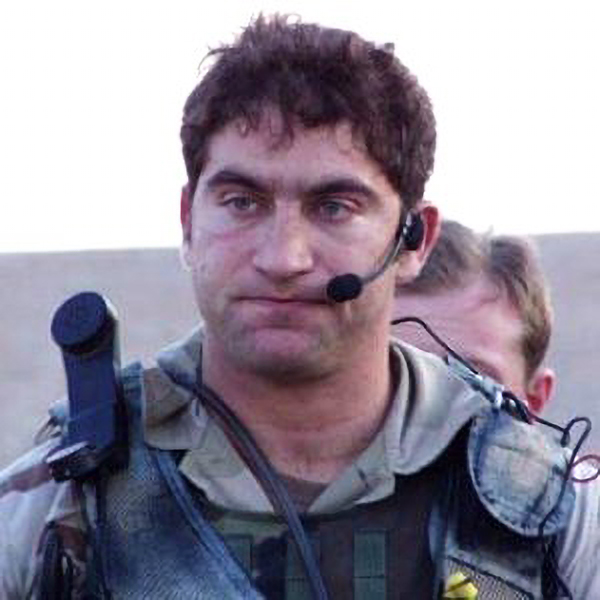
Major Guy “Bear” Barattieri, Company A, 1/19th SFG(A), Washington NG
Personal Recollections
Peshraw and I enjoyed many adventures together. I recall, with fondness and respect, three specific events, each offering a priceless insight into his character and genius.
The first took place along the highway leading from Erbil back down to Baghdad. We were traveling at a very high rate of speed, Peshraw driving, when we saw a large herd of sheep being driven by their herder along the side of the road. In front of us was a taxi that, when one of the sheep strayed out onto the pavement, the driver struck and killed.
The taxi kept going and Peshraw immediately overtook it and forced it to pull over. I watched as he angrily berated the driver and then motioned the sheep herder to join them. After a few minutes of a truly animated conversation between all three, the driver pulled out some money which he gave to the herder. Once back in our vehicle Peshraw explained each sheep was irreplaceable and when something like this happened, it was understood a herder or family would be reimbursed for their loss. “He was not from Erbil,” Peshraw told me, regarding the taxi driver.
Another time, in Baghdad, Peshraw noticed I wasn’t wearing my glasses which I, at the time, needed to be able to read. Upon him asking I shared they’d broken and I had no other pair. Later that afternoon I found myself with a Kurdish escort at an Iraqi optical shop where I was tested and fitted for new reading glasses…two pair. Again, an intense interest in people and their welfare permeated Peshraw’s character and this translated into his acute penchant for attention to detail in all other matters.
However, it is the trip to a beautiful outdoor recreation and dining outdoor destination about an hour outside of Erbil, that I remember the most. We were in Erbil on business and for one day we simply escaped to the hinterlands to decompress. We ate, drank, and hiked a bit taking a moment to stop by a fast-flowing mountain stream where I took off my boots and soaked my feet in its cool waters. Kurdistan was safe, or at least much, much safer than Baghdad. On my first trip to Erbil with Peshraw I’d kept my AK-47 with me despite Pesh’s insistence I could leave it in my hotel room. This time around I’d left the rifle back in the room and was carrying, as was Peshraw, only a handgun.
The Kurds had secured their homeland with overwhelming support from the United States. They had rebuilt their villages, towns, and cities. They had spilled blood alongside American Special Forces soldiers during the fight for the north in 2003. Unlike Saddam’s Iraq the Kurdish People had transformed their “autonomous zone” as it is still called into a thriving, kinetic, and secure country – and a country and People who shared our national security concerns, considerations, and needs.
And Peshraw Agha Dizayee was instrumental in all aspects of this still-ongoing enterprise.
Decapitation Strike
“My daughter and son were in their rooms. Peshraw and his guest were sitting on the ground floor. Suddenly we were struck by several missiles,” Jutiar said.

Peshraw’s wife, Jutiar, lost both her husband and her 11-month old daughter in the targeted attack by Iran on their home. (Credit: Kurdistan 24)
“The Islamic Revolutionary Guard Corps (IRGC) on Jan. 15 night targeted the private residence of renowned Kurdish businessman Peshraw Dizayee during a family gathering in Erbil, where he was killed along with his daughter and two other guests. Six others were wounded in the attack.”
On January 16, 2024, Iran launched three of its highly nimble and accurate Fatah 110 ballistic missiles, all programed to strike the home of Peshraw Agha Dizayee who had just returned from abroad. A fourth missile struck the home of a senior Kurdish intelligence official and a fifth a major building belonging to the KDP, or Kurdish Democratic Party of which Peshraw was a senior member.
Iran’s attack was a decapitation strike focused on the most influential and effective of the Kurdish Intelligence capability. A capability that stretched far into Iran itself, Turkey, and Iraq among other Arab countries in the region. When former president Donald Trump, in 2017, was convinced by his staff to discontinue support and protection for the Kurdish People in Syria it was the American veterans who’d fought with the Pesh Merga in 2003 / 2004 who spoke out against this flawed change of policy. In less than a week Trump reversed his decision and said support continues to this day.
A Martyr’s Death
“Traditionally Martyrdom is considered to apply to those who die in battle, holy jihad. This is known as Shahadah Haqeeqiyyah, real martyrdom.”
“We pray that Allah may grant mercy to the martyr (Peshraw Majid Agha Dzayi) and the martyrs of this tragedy and admit them to paradise.” – Falcon Group
Peshraw died in the ongoing battle to preserve Kurdish culture, its people, and Kurdistan. He was not, as Iran claims, an agent of the Mossad or any other foreign intelligence service. As another American friend of ours shared with me upon our learning of his assassination “The scale and scope of his operations [were such that] there’s zero doubt who they were after. Big loss for Kurdistan and Iraq.”
As Pesh Merga his passing assures his family of great recognition, honor, and privileges as accorded these Kurdish warriors by their government.
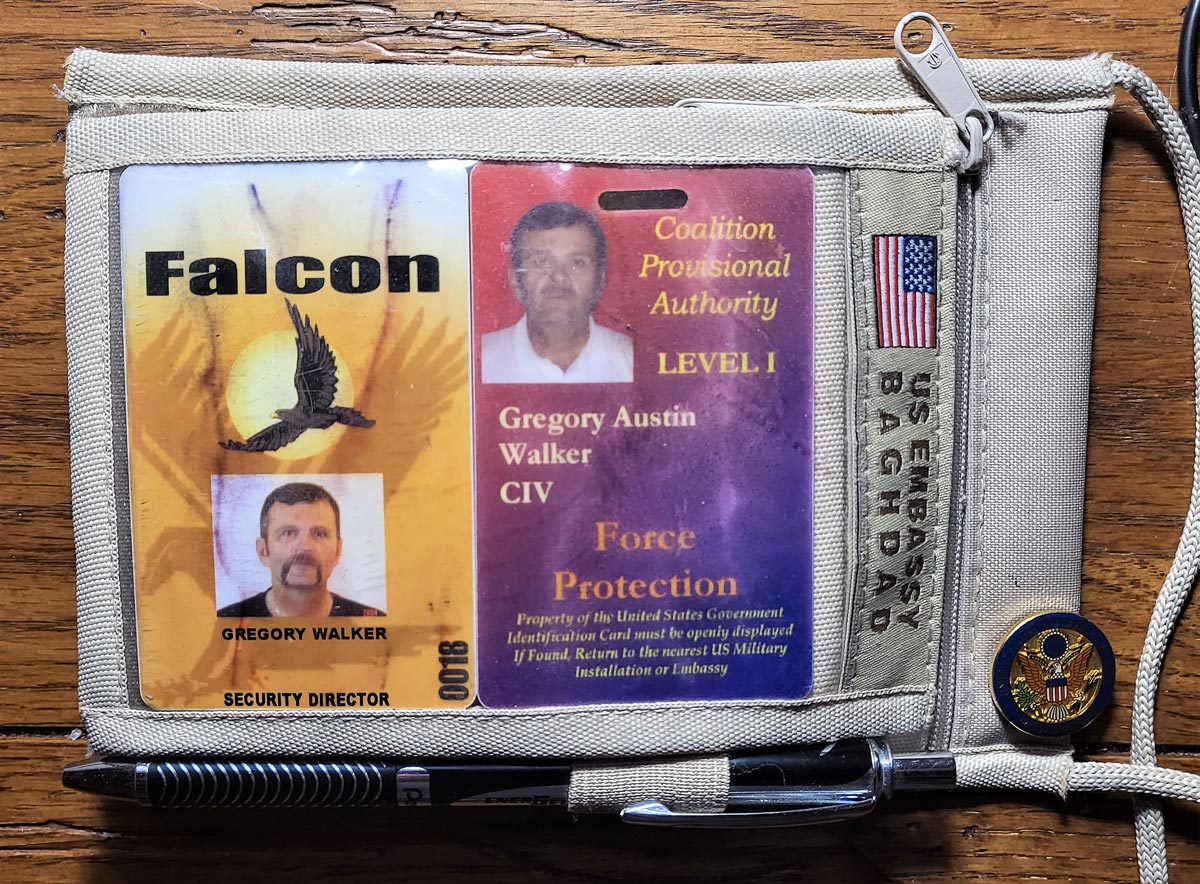
“A good companion shortens the longest road.”—Kurdish proverb (Credit: Author collection)
ABOUT THE AUTHOR — Greg Walker is an honorably retired Special Forces soldier. In late 2003, he returned to Baghdad as a DoD defense contractor supporting the Coalition Provisional Authority. In early 2004, Greg joined Falcon Group as its first director of security working directly for and alongside Mr. Peshraw Agha Dizayee, its founder and CEO. Today Greg lives and writes from his home in Sisters, Oregon, along with his service pup, Tommy.
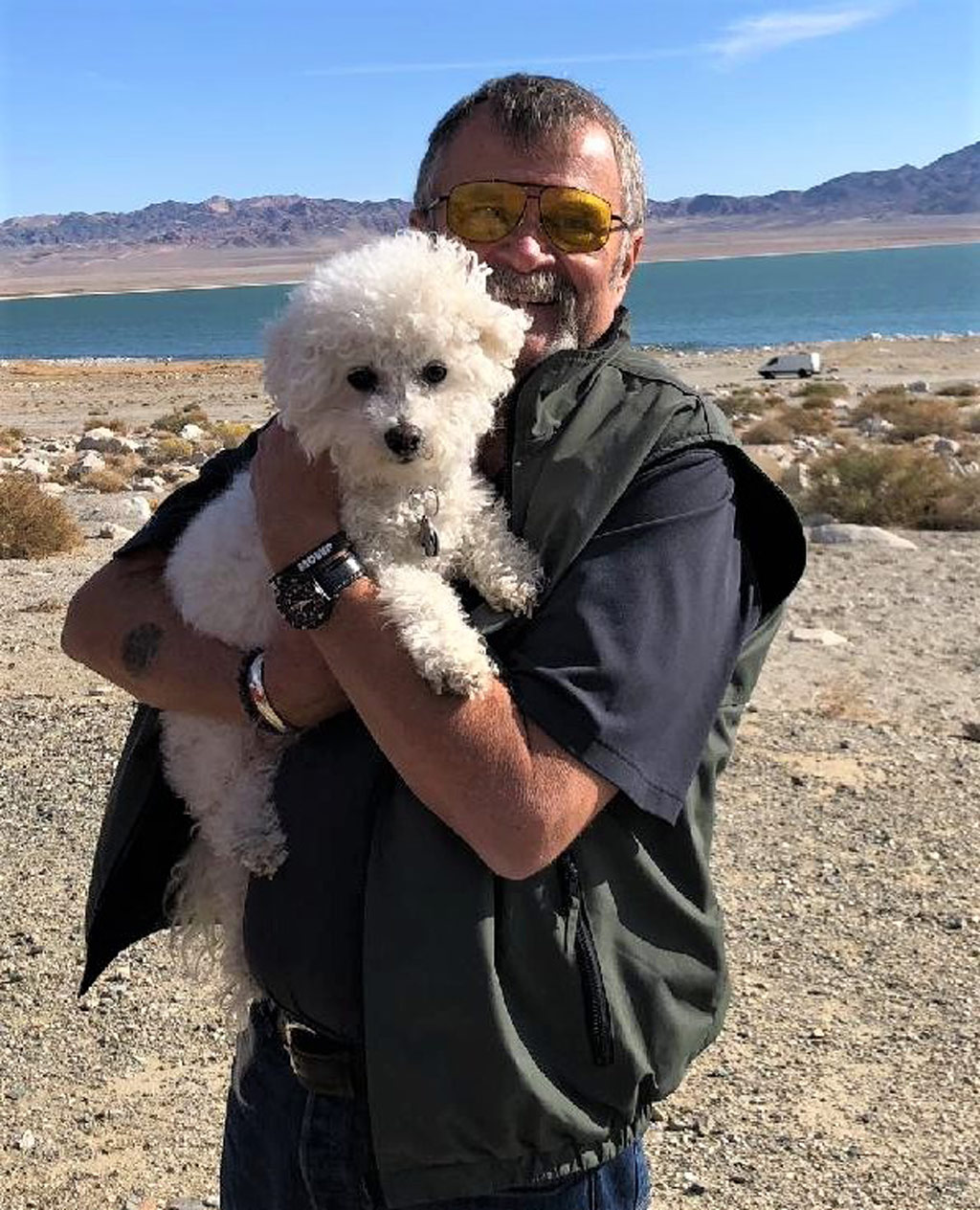
Leave A Comment